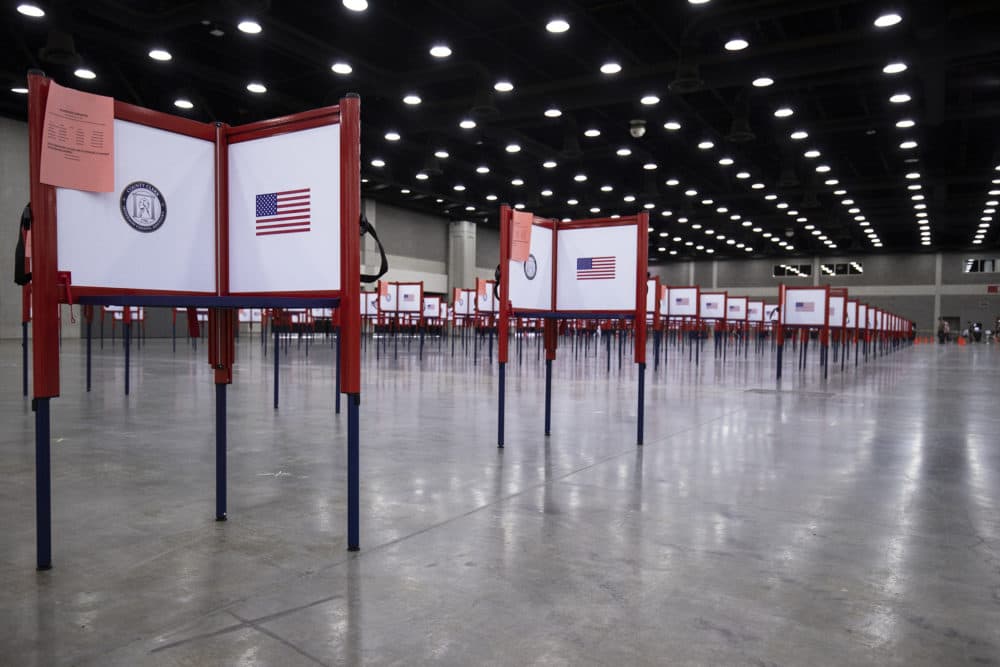Advertisement
Here & Now's 2020 Election Coverage
Kentucky Board Of Elections Head Says He's 'Incredibly Confident' About Nov. 3
Resume
Earlier this year, the head of the Kentucky State Board of Elections told the state legislature that its election system is routinely scanned from IP ranges located in Venezuela, North Korea and Russia.
The Washington Post reported this week that the CIA believes Vladimir Putin is likely directing a misinformation campaign from Russia to damage Joe Biden's presidential campaign. Local election officials still need help combating foreign interference.
“We know that individuals scanning our systems from those areas, you know, they're not up to good intentions,” says Jared Dearing, executive director Kentucky’s Board of Elections. “Let's just say that.”
The scans are a non-invasive tool used to find open ports that can be accessed remotely, he says, but no one has successfully entered the system.
The pandemic hasn’t stopped election security work, which Dearing says is at the forefront of the board’s focus. He lobbies for funding from the state legislature to support these efforts.
The Board of Elections receives both state and federal funding, but these resources cover everything from paying staff to buying ballot envelopes in addition to security.
During the pandemic, Kentucky received $6 million from Congress through the Cares Act for election improvements. Dearing says people should view election funding as a stable “tripod” of money.
“It's really important to understand that these tranches of funding that they kind of drop-in with a parachute from the federal government,” he says, “I think it would be more effective if they were spent out on a yearly budget cycle because states could more effectively plan for what that budget would look like year to year.”
States around the country are having a tough time finding enough poll workers because of the pandemic. In Kentucky, the average age of a poll worker is 65, he says.
Now, a big chunk of the state’s poll workers are at high risk of getting COVID-19. County clerks are struggling to effectively recruit people to fill this important role, he says.
People think of Election Day as a one-day event, but Dearing says months of administrative work go into making it successful. A key part is recruiting and training poll workers.
When one of four poll workers at a precinct is replaced, the new person can easily learn from the other three, he says. But if three of the four workers are new to the job, that creates an “incredibly difficult situation” that concerns Dearing.
“There's a lot of training and a lot of knowledge that goes into running an election at a precinct level,” he says. “We're really dependent on our poll workers and really dependent on really good poll workers that make sure that elections are running smoothly at the precinct level.”
With voters nationwide concerned about mail-in voting and potentially long lines at polling sites, Dearing says he’s “incredibly confident” that the state can execute a successful election. He stresses and worries during any election — but he says that’s his job as an administrator.
His confidence in-part stems from the bipartisan nature of Kentucky’s election planning, he says.
“We have a Democratic governor, Republican secretary of state, and that's given us a lot of ability and springboard to implement successful strategies of having a secure and safe election,” he says. “And so I'm really actually optimistic about our process and how we're going to move forward toward Election Day itself.”
Marcelle Hutchins produced and edited this interview for broadcast with Tinku Ray. Allison Hagan adapted it for the web.
This segment aired on September 25, 2020.

